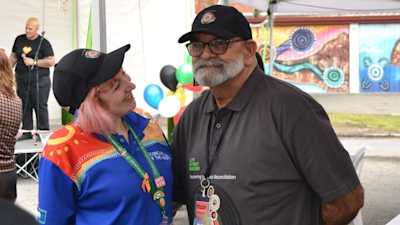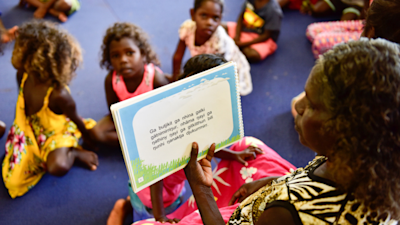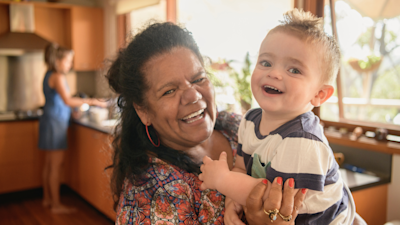“Children really are our future leaders, and when you think about us mob only being a small number of the population – we know, our future are these kids."
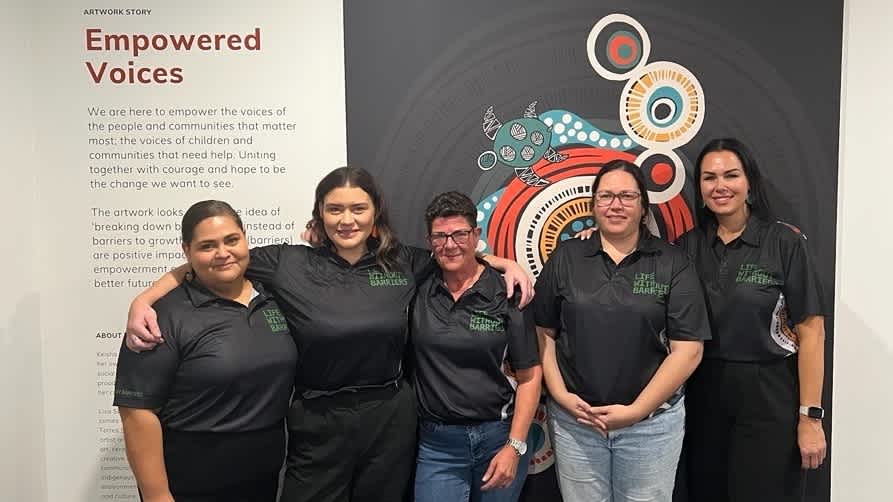
Image: The Aboriginal and Torres Strait Islander Practice and Partnerships team, from left: Kristina Radcliffe, Director WA, Justine Reid, Director QLD, Wendy Knight, Executive Director, Shannon Mackie, Director NSW, and Lisa Woods, Director SA.
The National Transition Roadmap shows our journey to transition Aboriginal and Torres Strait Islander children and young people in our care back to community, culture, family and kin.
Sharing the Transition Roadmap is an important and transparent step which offers a resource so other organisations can do the same. The Transition Roadmap was shared in a special session for employees and carers led by Kristina Radcliffe, Director for Aboriginal and Torres Strait Islander Practice and Partnerships in Boorloo (Perth).
View the Transition Roadmap here.
Kristina, a proud Naaguja Yamatji Martu woman shared the story of her grandmother, who was part of the Stolen Generation, while acknowledging the Country she is from.
“I always acknowledge my grandmother’s Country as part of the Stolen Generation as that’s what it’s all about.”
“Children really are our future leaders, and when you think about us mob only being a small number of the population – we know, our future are these kids," Kristina shared.
“That’s why this is so deeply personal to me. I need to work for community, and for my community, and make sure these little ones ease back in surrounded by their culture, their mob.”
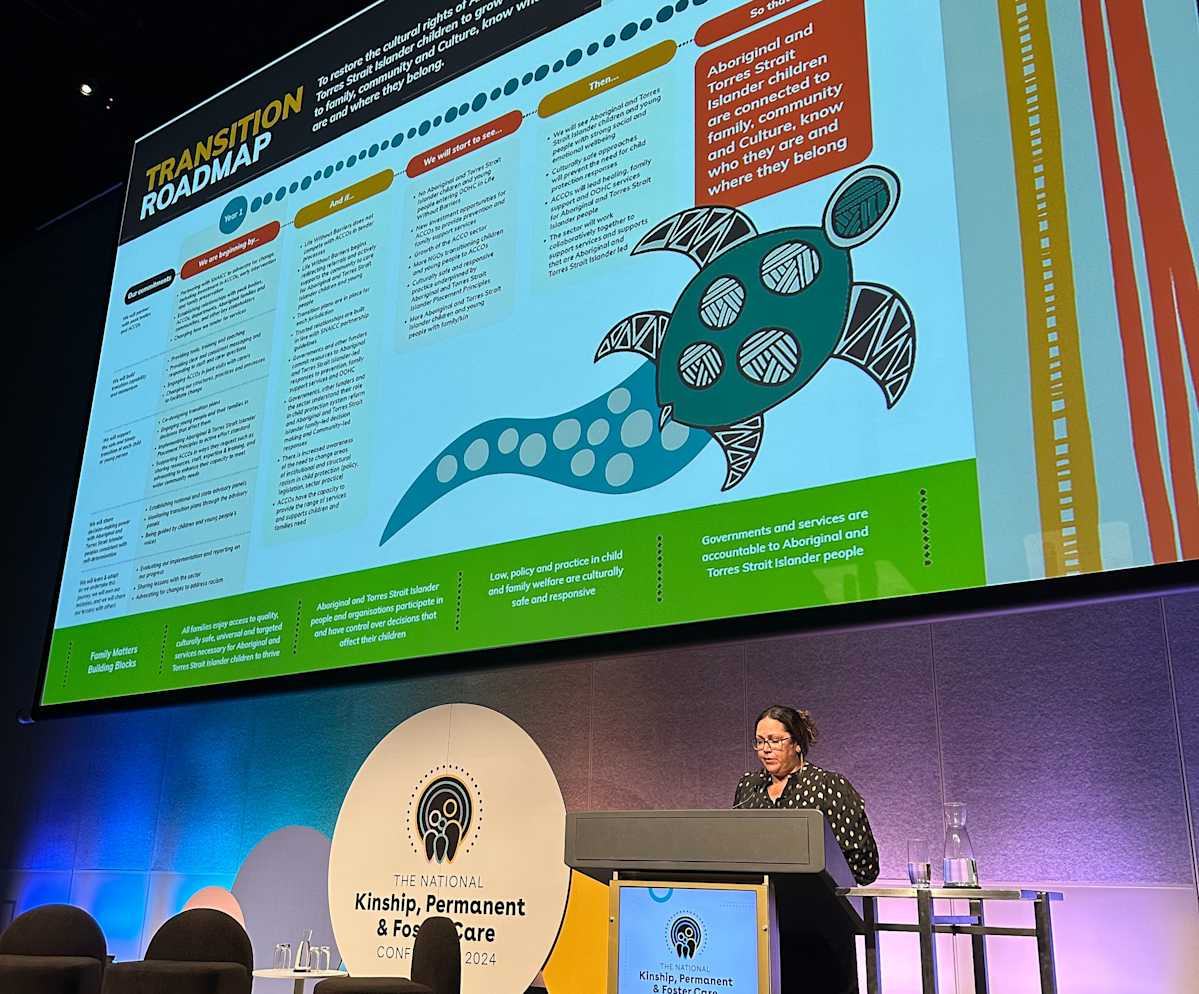
Image: Shannon discussing the Transition Roadmap at the National Kinship, Permanent and Foster Care Conference, 2024.
Kristina introduced Shelley Farmer, a Noongar, Wongi woman living in Boorloo (Perth), who spoke about her lived experience of care and being removed from her culture.
“One of the most amazing things about being a black fella is that our best practice is yarning,” Shelley shared.
“To yarn is connection. Connection is the closest thing to being human."
"When we remove children, we are essentially taking them further away from their connection, which is taking them further away to that feeling of human.”
Life Without Barriers’ Transition Roadmap was developed in partnership with SNAICC – National Voice for our Children and shows how we are accountable to our national partner and to Aboriginal and Torres Strait Islander children and young people and their right to grow in culture and with kin.
Justine Reid, a Ghungalu woman and Director of Aboriginal and Torres Strait Islander Practice and Partnerships in Queensland said the Roadmap is about collaboration to return children to community and kin.
“That’s why we are here,” Justine said.
“It’s the work that we’re doing and Life Without Barriers has made the commitment to this beautiful piece of work to get our babies home.”
The Roadmap is the path we will take to make sure children and young people are growing up connected to family, community and culture and they know who they are and where they come from.
“I think that’s the key. That knowing of who you are and where you come from, that’s so integral to your identity and that’s often lost for our kids in care,” Justine shared.
Wendy Knight, a proud Aboriginal (Barkindji) woman living on Bundjalung country, Executive Director, Aboriginal and Torres Strait Islander Practice and Partnerships, leads the team driving this important work to return jarjums back home to family, kin and community.
“So far, we have transitioned 30 children and young people to Aboriginal and or Torres Strait Islander community-controlled organisations,” Wendy shared.
“Our commitment is to contribute to reducing the over-representation of Aboriginal and Torres Strait Islander children in out-of-home care by 45% across the sector by 2031.
“This means our commitments are not only to transition children and young people in our care, but to advocate for a reduction in the number of children removed from their families too.”
To close off the release of the Transition Roadmap, change maker Shelley Farmer shared a powerful call to action about working in the out-of-home care sector:
“There's something that burns in all of our bellies as to why we came into this industry in the first place.”
“You all want to be an agent of change. That's why we all come to work. And This is why we do this,” Shelley shared.
